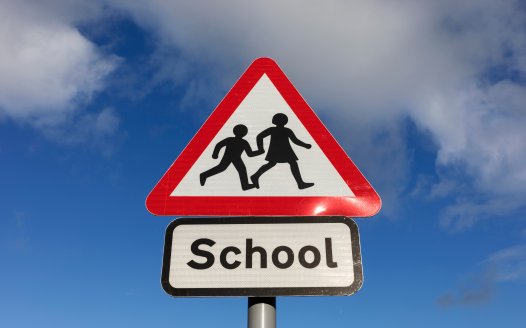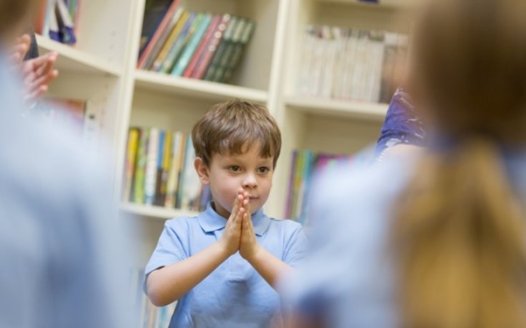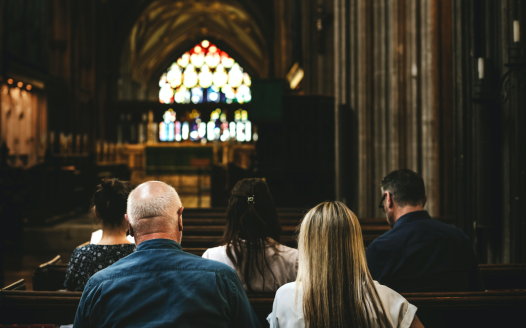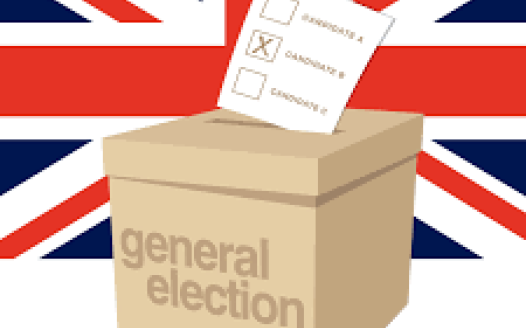Church and State united in denying religious freedom to young people
Posted: Tue, 5th Jul 2016 by Keith Porteous Wood
NSS executive director Keith Porteous Wood writes on the union between church and state that is denying freedom of religion to young people – in defiance of the United Nations and human rights.
The UN recently recommended that the UK "repeal legal provisions for compulsory attendance at collective worship in publicly funded schools and ensure that children can independently exercise the right to withdraw from religious worship at school." This was just one of a number of recommendations made by the body responsible for monitoring the implementation of the United Nations Convention on the Rights of the Child, to which the UK is a signatory.
The provisions are principally aimed at England & Wales which are the only countries in the world where every publicly funded school is required by law to hold an act of "mainly Christian" worship, and where withdrawal is only possible at the behest of parents, and some sixth form pupils. Worship is not as prescribed in Scotland, however there are no provisions whatsoever for pupil opt out. Worship is also a daily requirement in Northern Ireland where Catholic-controlled schools hold Catholic worship and controlled schools (which have traditionally served the protestant community) provide broadly Christian worship that is not "distinctive of any particular religious denomination". Again, there is no independent right of withdrawal.
The provisions for England originated in 1944, before the Universal Declaration on Human Rights. The only concession to Human Rights in the ensuing seventy years was an amendment campaigned for by the National Secular Society in 2006, which allowed some sixth formers in England & Wales to withdraw. The Government rejected our more ambitious original proposal: that all pupils of "sufficient maturity, understanding and intelligence" be able to opt out themselves, despite support for our position from the Joint (Parliamentary) Committee on Human Rights.
Last month I took part in a series of BBC radio debates around England at which it was announced that despite the UN's recommendations, the Department of Education (DfE) would "not be changing the requirements for the daily act of collective worship".
Its attempts at justification failed to engage with the substance of the UN's objections.
The DfE, led by the evangelical Nicky Morgan, stated that: "Collective worship encourages pupils to reflect on the concept of belief and helps shape fundamental British values of tolerance, respect and understanding for others. The law is clear that all schools can tailor provision to suit the needs of their pupils, and parents can choose to withdraw their children from all or any part of collective worship."
What it didn't admit was that Religious Education gives plenty of opportunities to reflect on the concept of belief and "shared values", and that such values are not a monopoly of religion. Given that the majority of pupils are not religious, imparting such values in a religious setting could be less effective and even counter-productive. The tailoring of Collective Worship to suit school's needs doesn't include an option to drop acts of worship altogether. Referring only to parents' opt out wilfully evades engagement with the UN's specific objection to the lack of pupil opt out.
Not that the DfE was alone. All too predictably, a Scottish civil servant has concluded that "Scottish Government does not consider it necessary to update its guidance in a form of a new circular to headteachers at this time". The Scottish "justification" was that Religious Observance and associated subjects are treated in a "pluralistic manner" and include "non-religious beliefs". In Scotland there is no right for pupil withdrawal whatsoever, even though the relevant legislation was passed in 1980.
Both countries totally failed to engage with the UN's objections, based on the Convention, and an acknowledgement that children have Human Rights too.
Like the DfE, the Church sees no reason to change the law, indeed, on this issue, the Church and state appear indistinguishable from one another.
Derek Holloway, from the Church of England's national educational office, was curiously anxious to concentrate on what happens in practice, rather than to be "hung up" on the law when I debated him on the radio last month. My protestation that one of the first values we should be promoting was respect for the rule of law failed to prevent him repeating this mantra about now being "hung up" on what the law required. It is difficult to conclude other than that the Church is keen for the law to remain in place as it will reduce the ability of children to decide for themselves whether or not to worship. He claimed that children not wishing to worship could "stand back with integrity", whereas the law on this, all will presumably know inside out, not only requires that the pupil attend unless withdrawn but, outrageously, that they "take part".
Repeatedly compelling children to worship involuntarily is indoctrination by any definition. When I spoke to him Mr Holloway would not accept that, and insisted that suggesting as much was somehow an insult to teachers. On the contrary, my sympathy is with teachers who are obliged to uphold this ridiculous law – often against their better judgement. When I told Mr Holloway of a recent complaint we received about a community school - not even a Church school – imposing worship three times a day, he justified it on the extraordinary grounds that "there must be an educational reason for it".
He described the law as protecting "the right of religious expression", conveniently avoiding any admission that, being mandatory, it imposes worship on schools that do not want to have it. The UN did not call for such worship to be banned, its objection is simply that it is required.
Another justification for ignoring the UN was that "faith is important". I am sure it is to him, and his Church clearly has a vested interest in as many as possible thinking so, but the evidence suggests the very opposite. Sunday schools have all-but disappeared, parents of school age children – whose rights include having their philosophical convictions respected in education – are among the least religious cohorts of the population and the non-religious are significantly in the majority.
Mr Holloway assured listeners that the Church very much supported children's Human Rights, quite rich given he had opposed outright the UN's recommendations on worship in schools and children's withdrawal from it.
But both sides to this debate acknowledge that the law is widely ignored. This is particularly the case in secondary schools – of course more so in community schools (non-denominational ones in Scotland and NI) than in church schools. But that is all the more reason for the law to be changed. An unenforceable law is a bad law, and what an example to set to children: there are some laws you follow, others you don't. Ofsted has long since given up on reporting on whether schools follow the law in this area. But there are also cases where it is applied in all its offensive zealotry, perhaps where the headteacher is determined (even in a non-church school) to share their evangelism with those under their charge. This is yet a further reason to implement the UN's recommendations.
The prize for the most shameless comment on the UN's recommendation goes to none other than the Parliamentary Chairman of the Conservative Christian Fellowship.
David Burrowes MP described the recommendation as "ludicrous and mad". He told The Telegraph that "The collective act of worship is not an indoctrination exercise. It is recognising and respecting the Christian heritage of the country and giving people an opportunity to reflect before the beginning of the day. The UN should spend more time doing its main job of preventing war and genocide rather than poking its nose in other countries' classrooms. We can respectfully put those kind of reports in the bin where they belong."
For Mr Burrowes, holding countries to account for not following the Conventions which they have ratified is something the UN should be insulted for, if in doing so it restricts his determination that Christianity be foisted on children at school, whether they want it or not.
In addition to organising an open letter to Nicky Morgan from a range of parliamentarians, faith groups, educators and human rights campaigners, we have now have written to the heads of all the devolved education departments to urge legislative changes along the lines of the UN recommendation, and pointing out the paucity of justifications proffered for not doing so.
The English and Scottish Governments and the Church continue to show shameless contempt for the UN seeking only to protect children's rights in line with Conventions we have undertaken to uphold. What a poor example that sets to the rest of the world. That both Governments should belittle the religious freedom of children and young people provides yet further evidence that they bow to vested religious interests at every turn. And yet more evidence of the growing secular deficit suffered by the increasingly secular population because of the growing deference to religion in our institutions, especially in education where doing so adversely affects millions of pupils and their parents.








